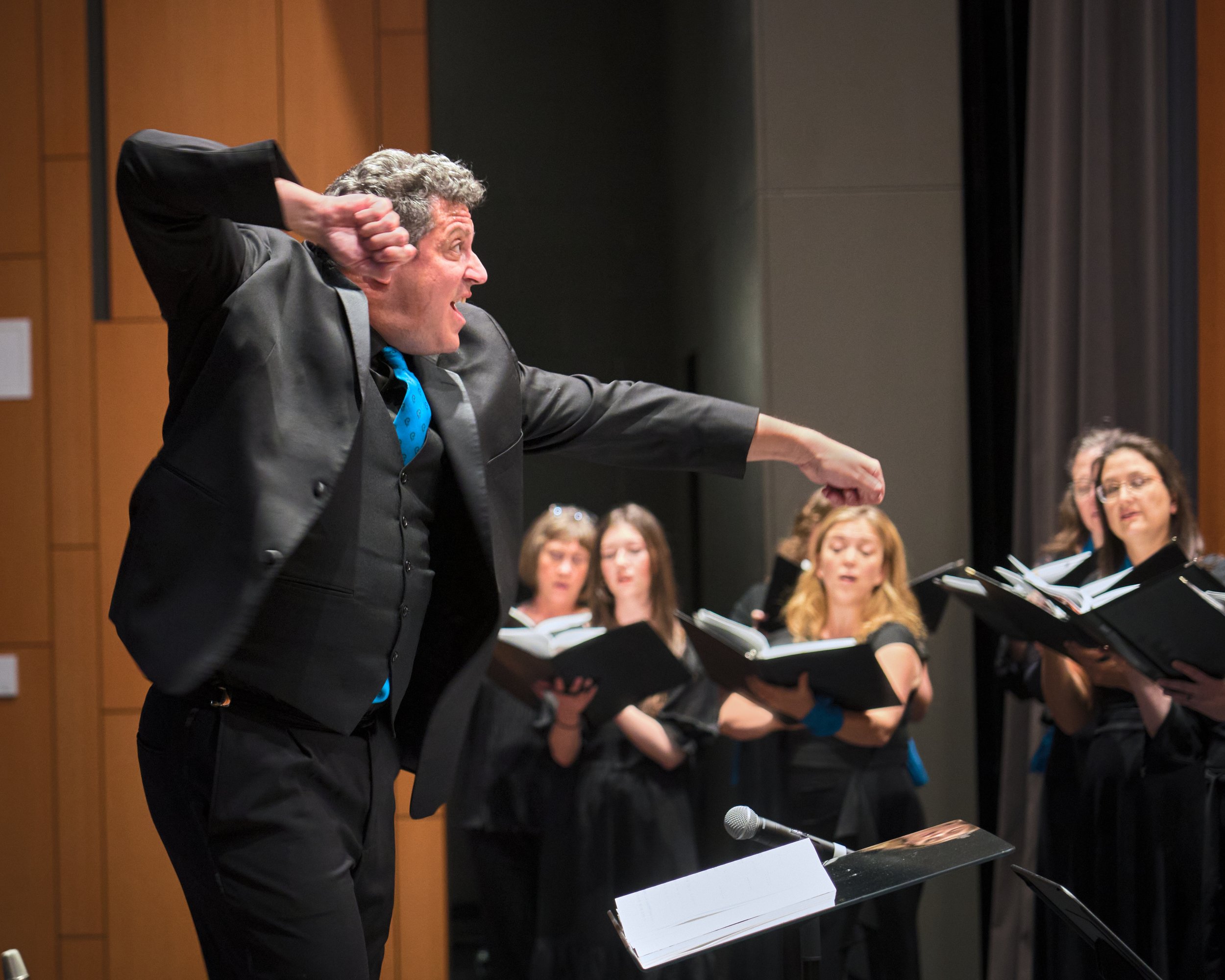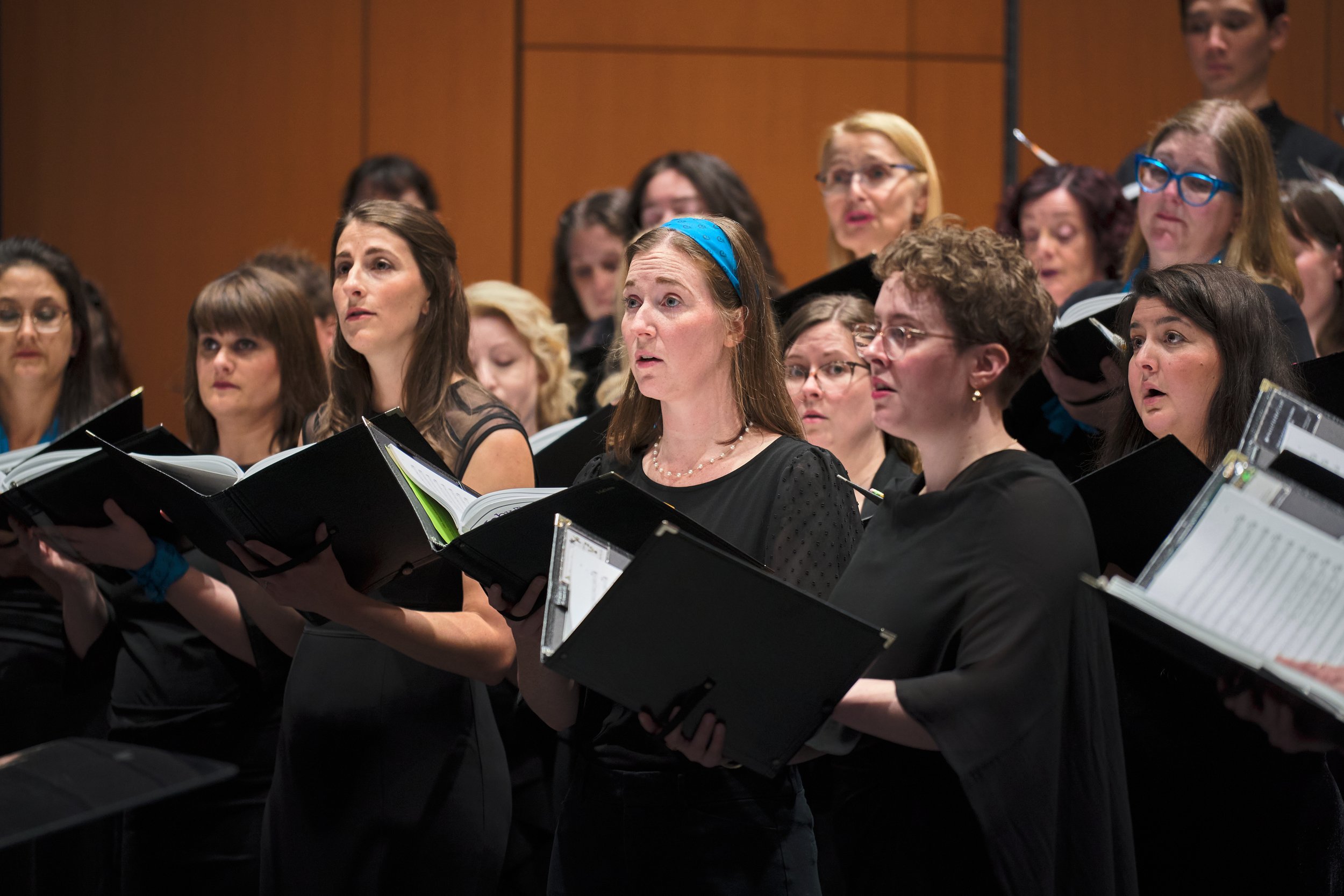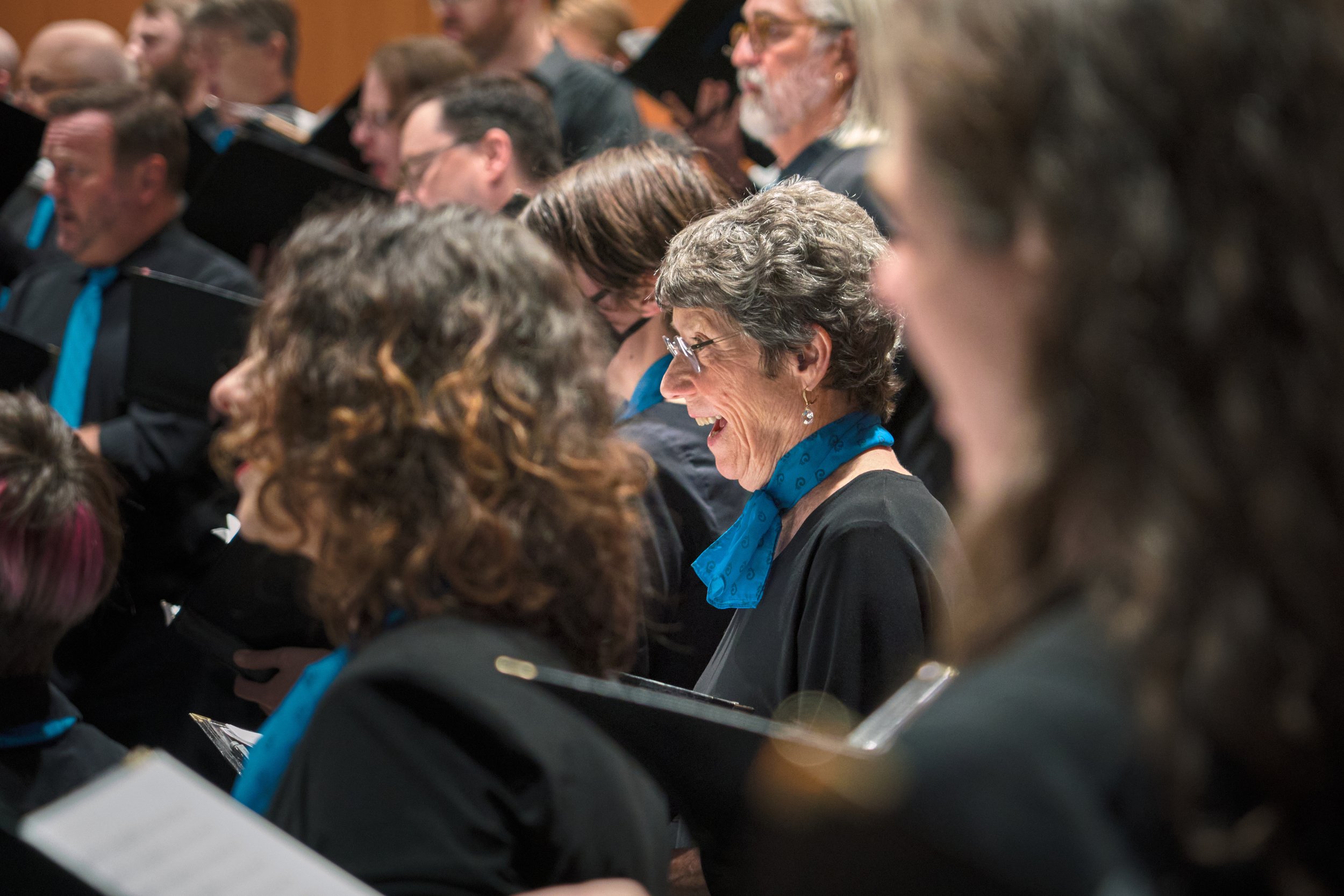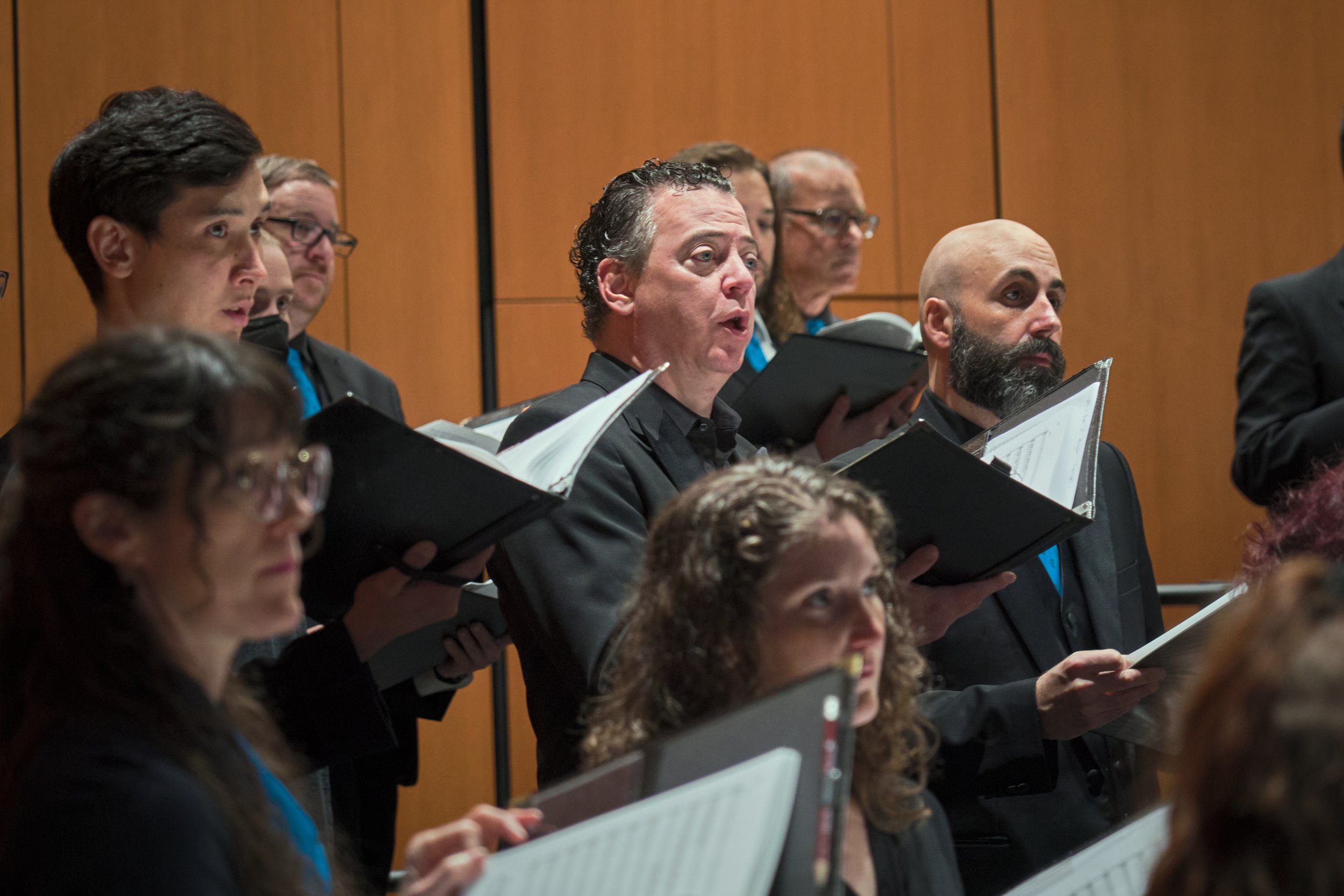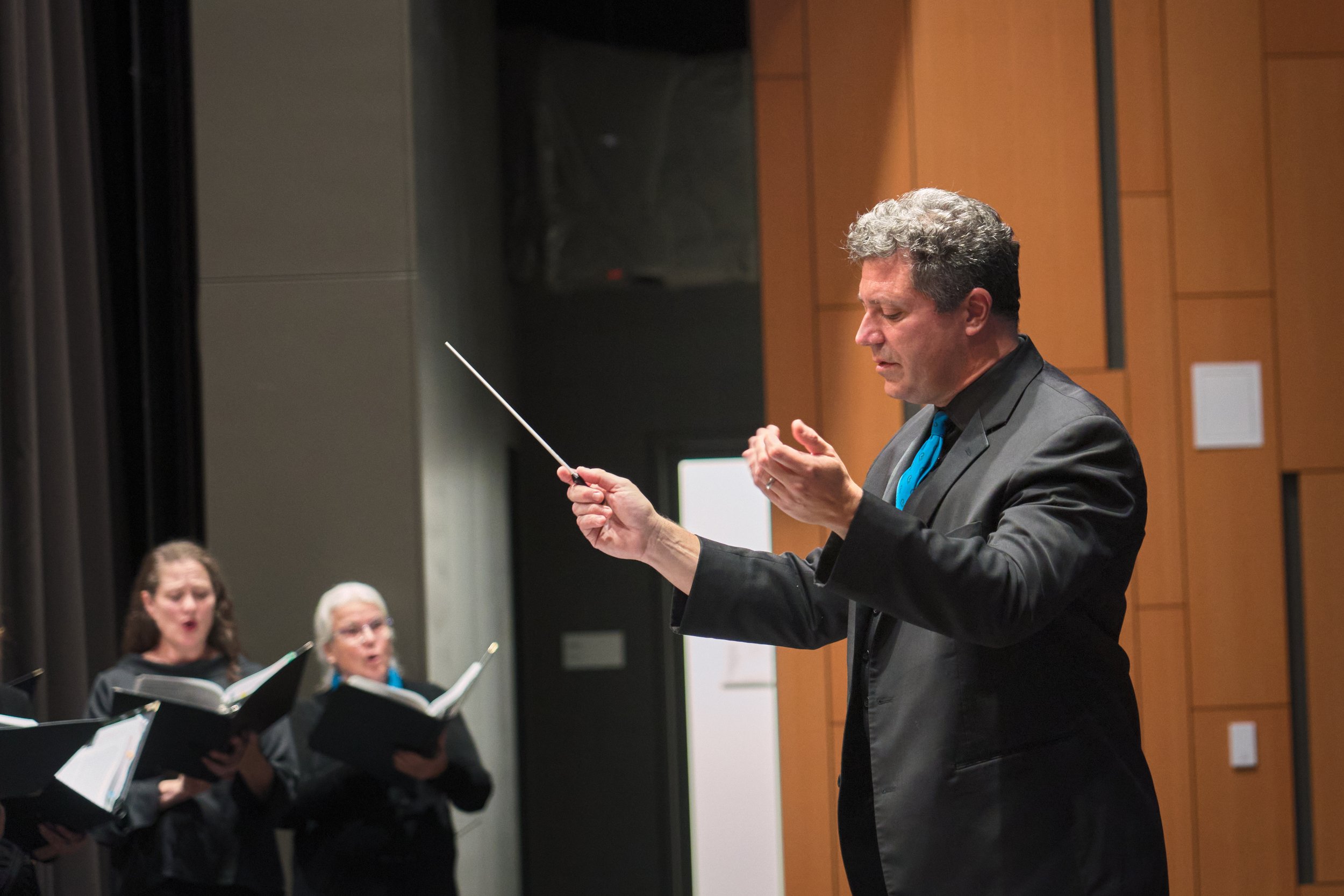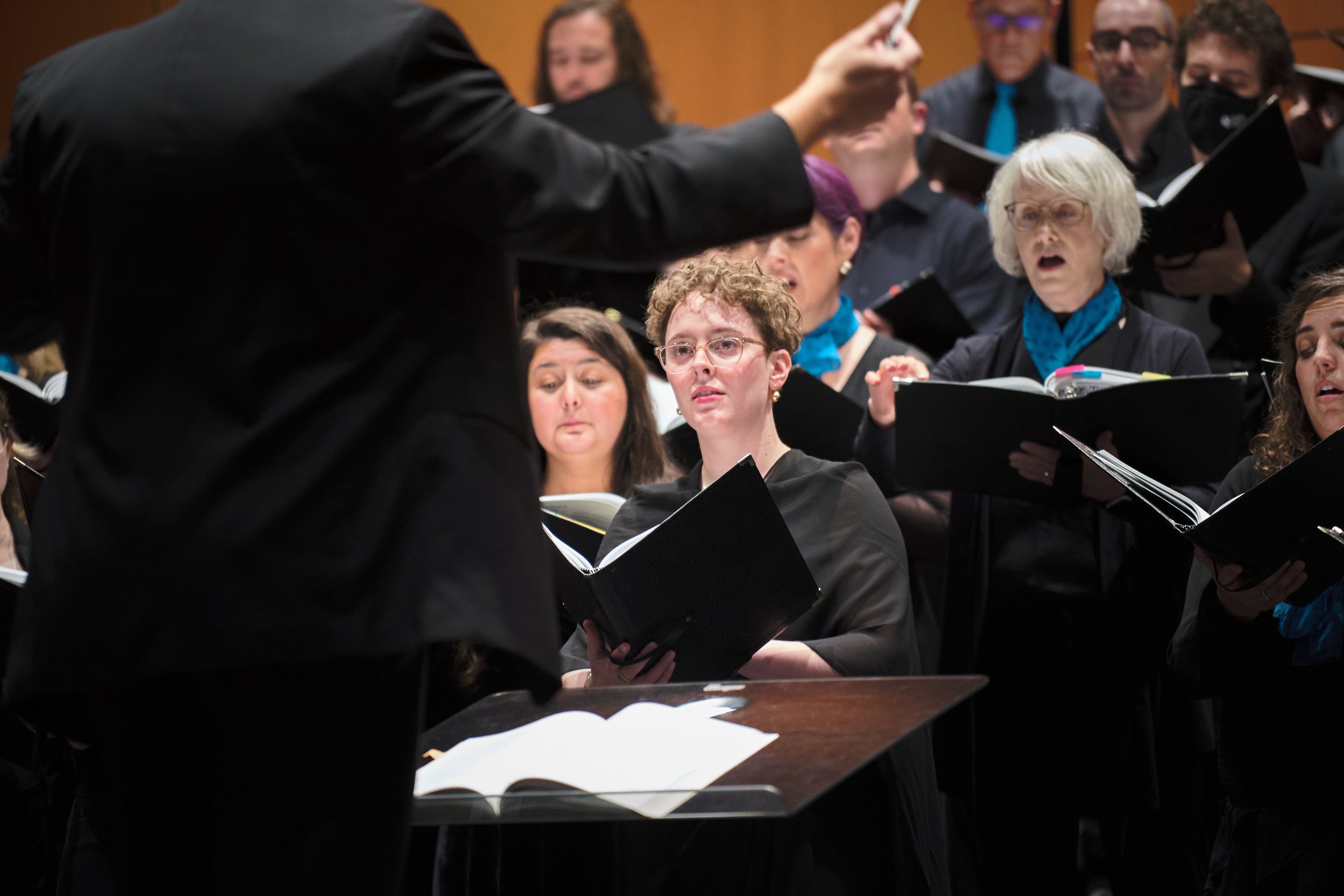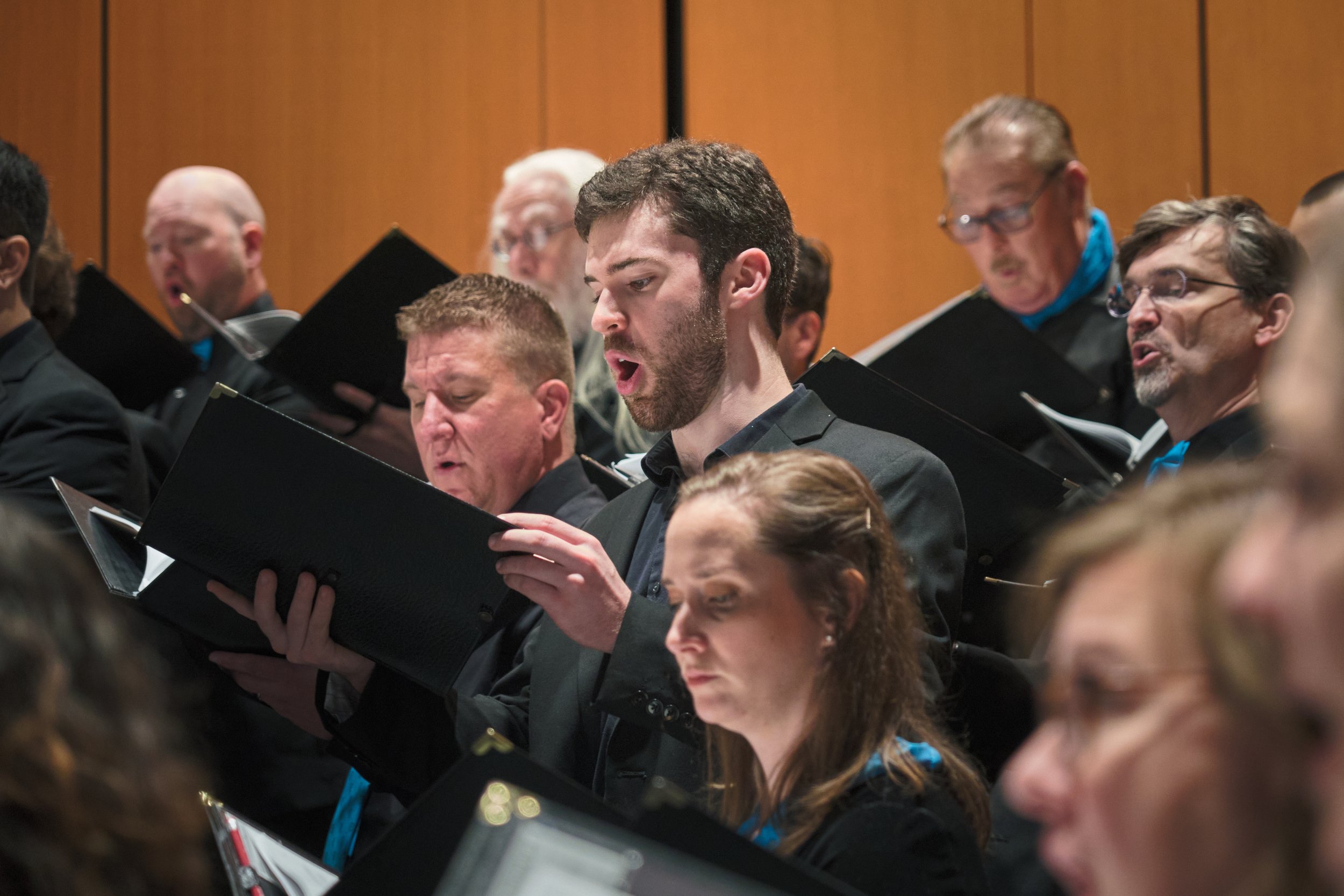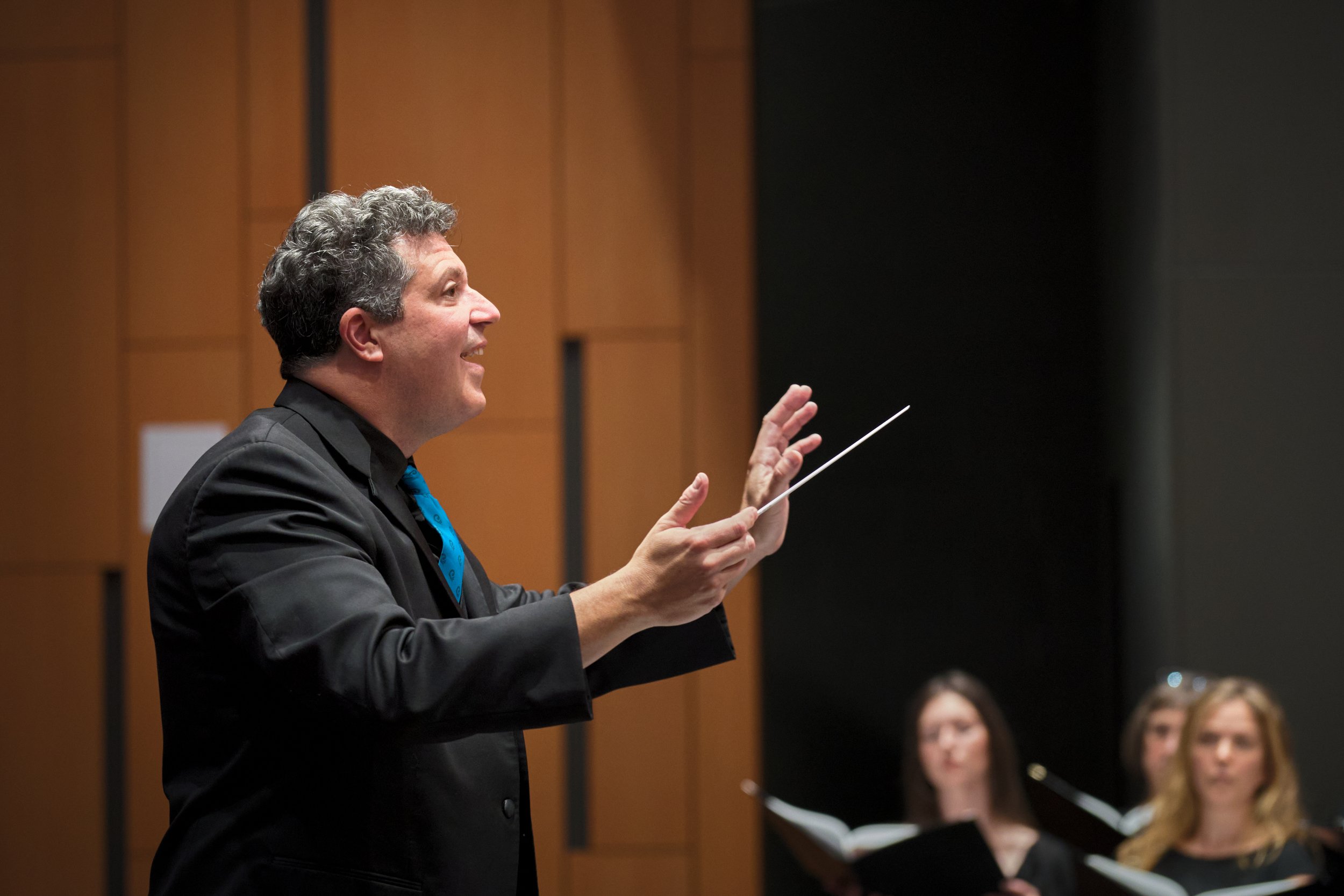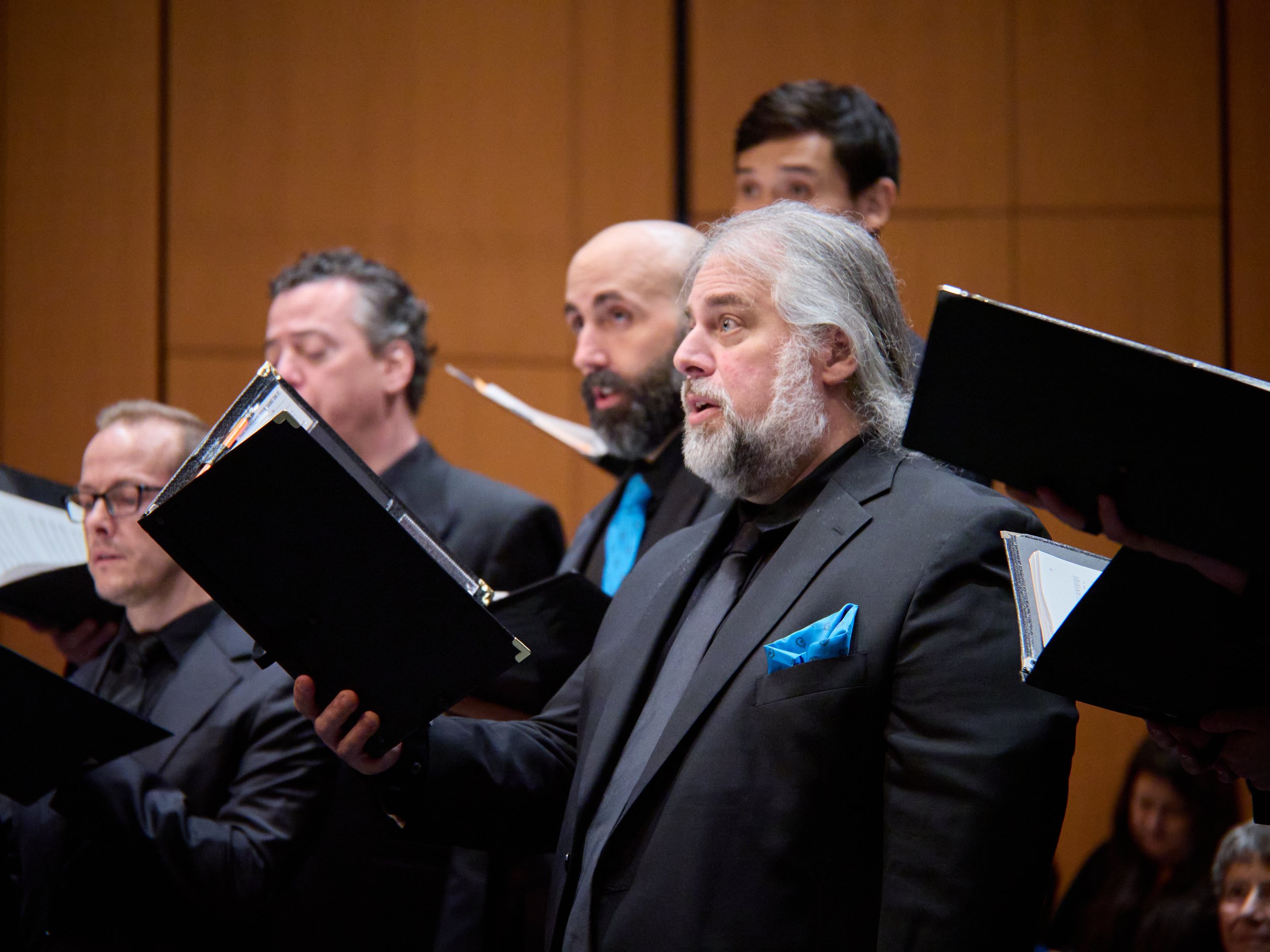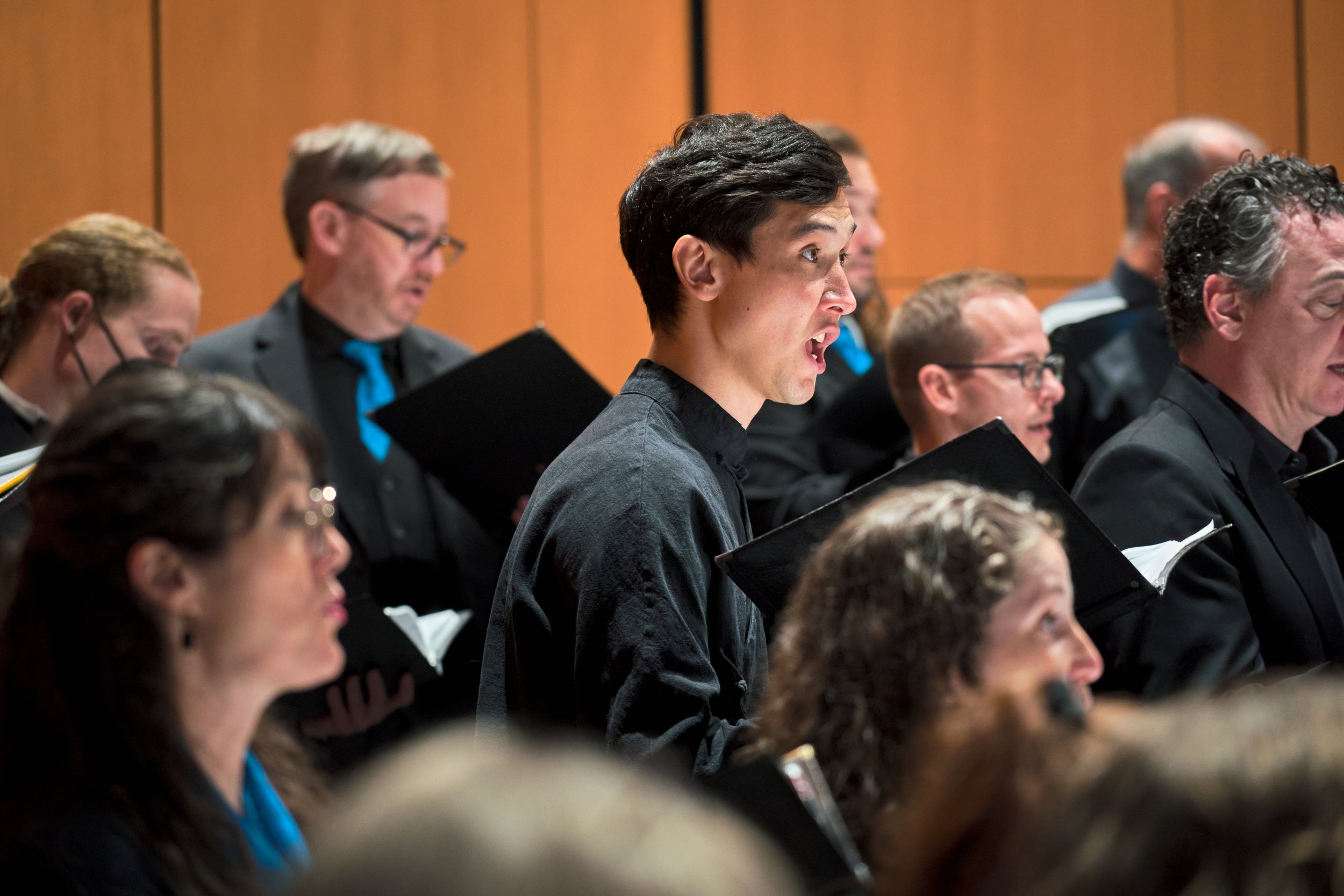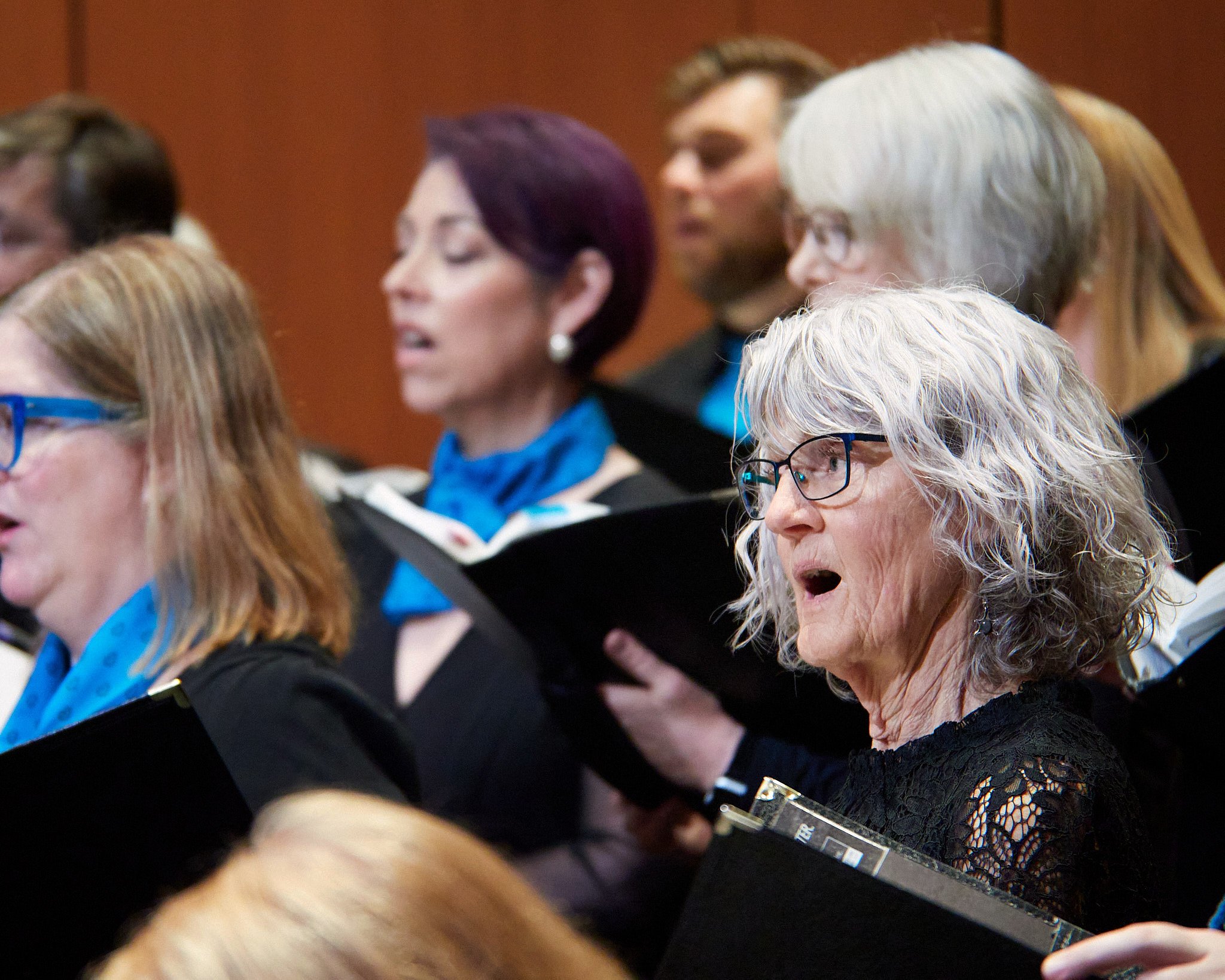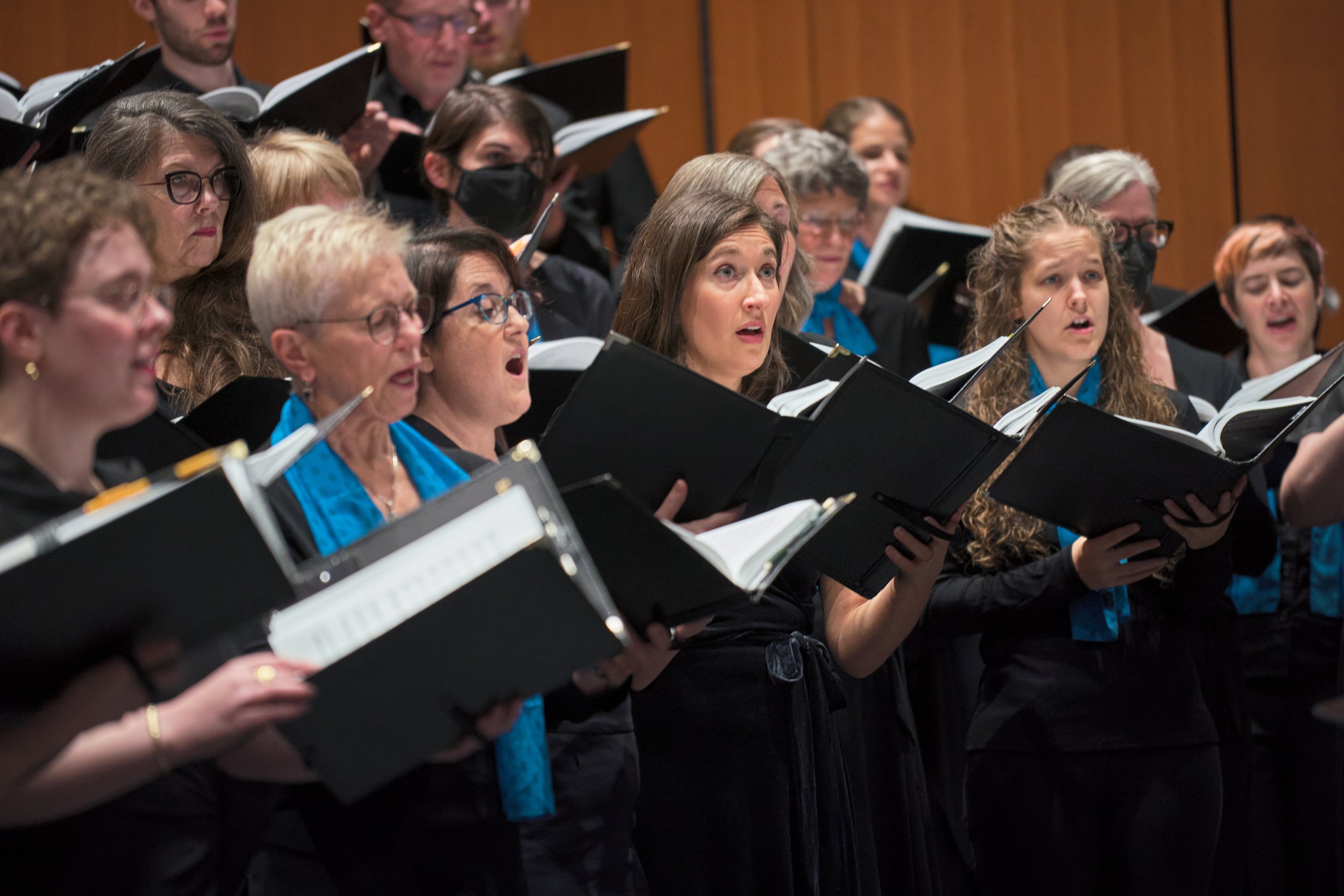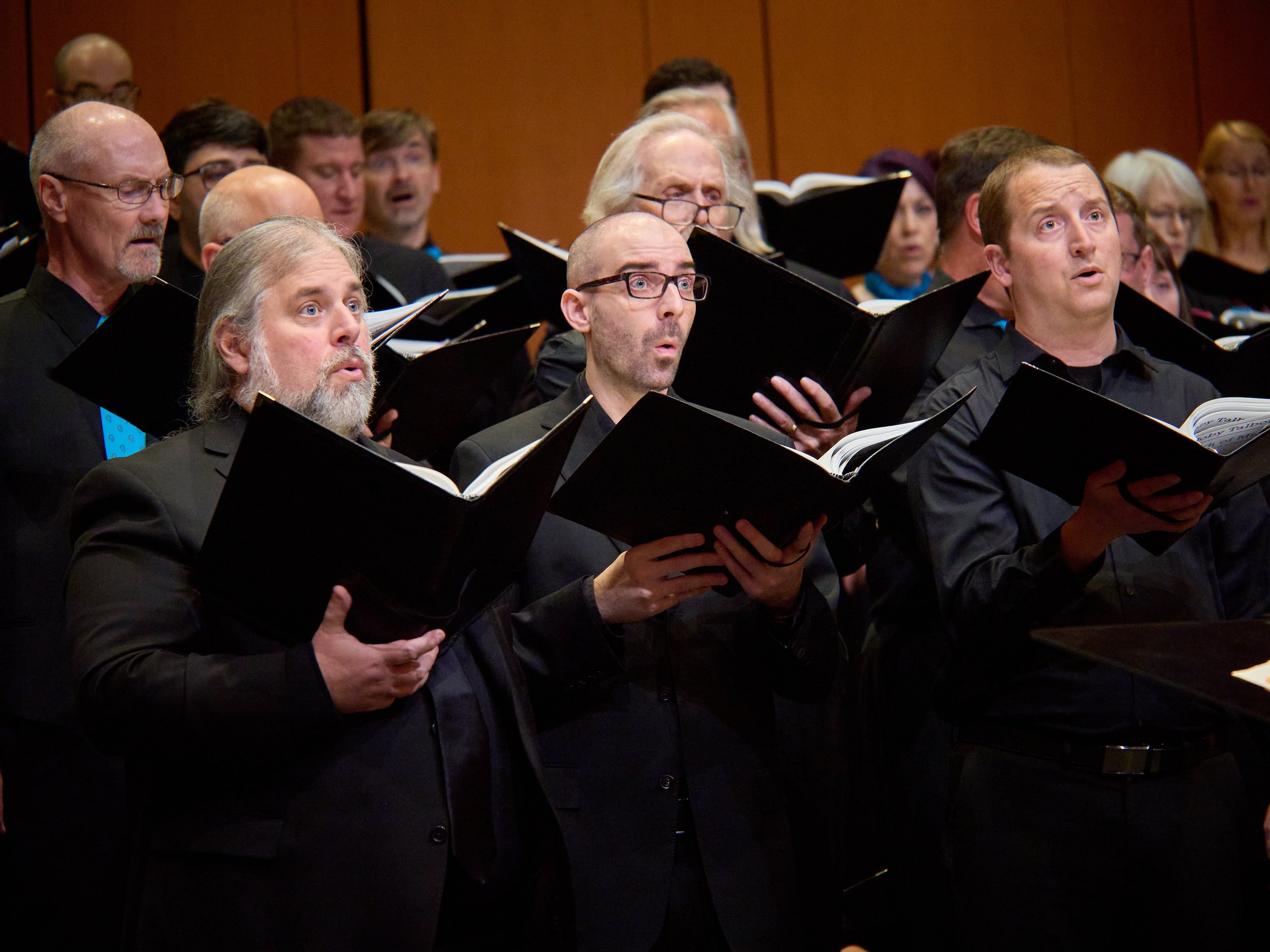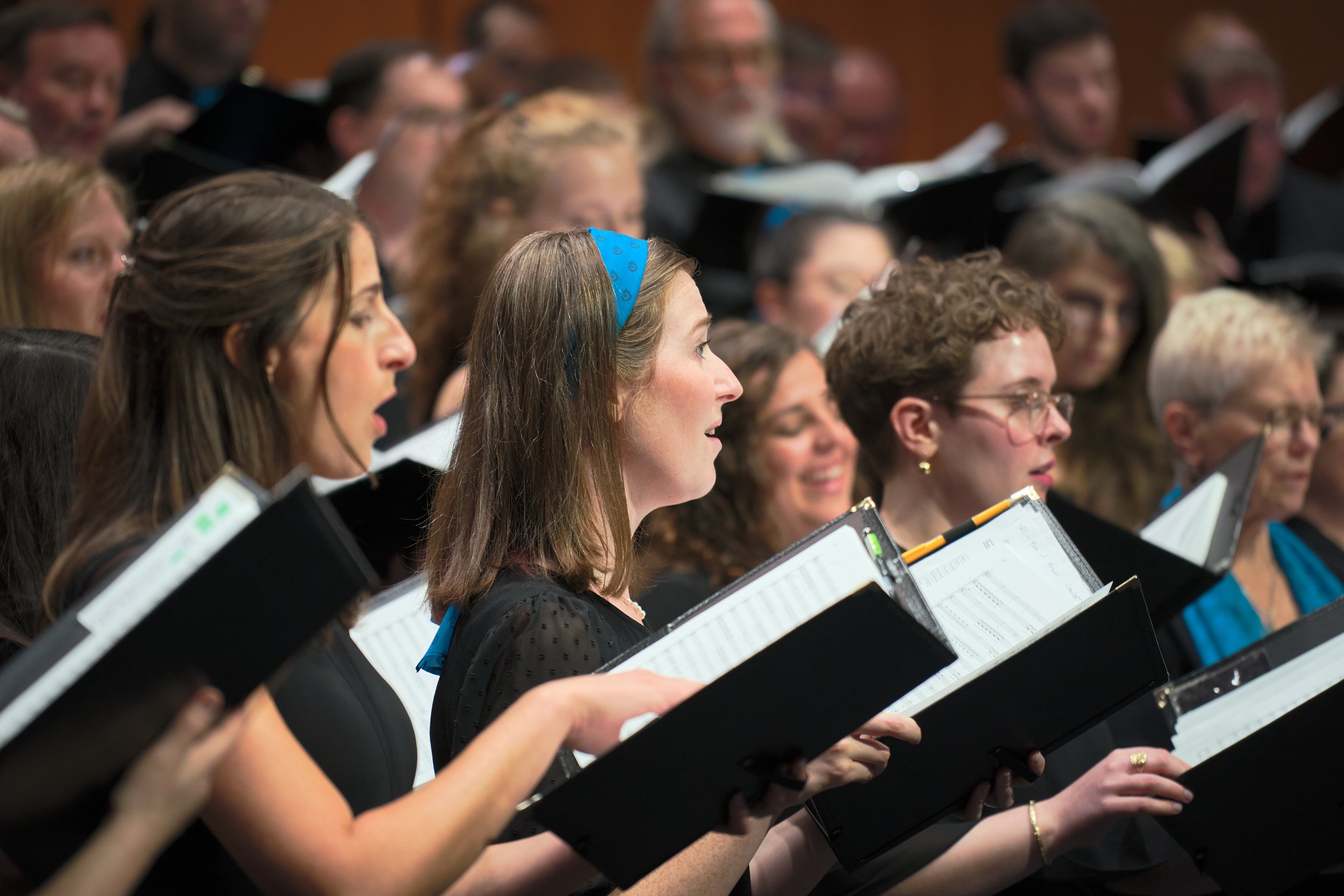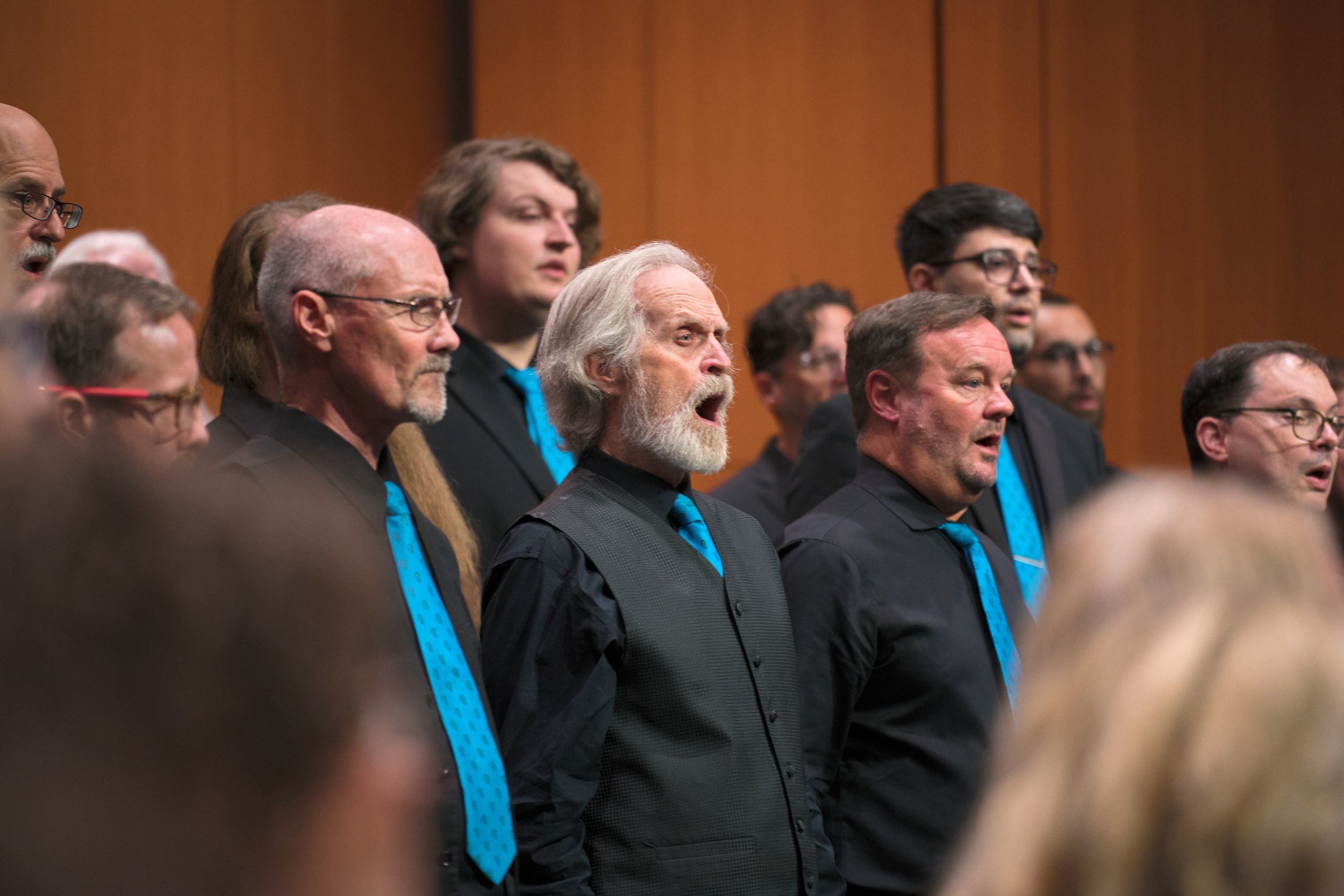
A Golden Age for Choral Music: An Interview with Ethan Sperry
by Ken Meltzer

This year marks the 50th anniversary of the Oregon Repertory Singers (ORS). 50, a new disc from Gothic Records, celebrates the chorus’s rich collaborative tradition. The following is my conversation with Ethan Sperry, the chorus’s artistic director and conductor.
Congratulations to you and the Oregon Repertory Singers (ORS) on the chorus’s 50th anniversary! Perhaps we could begin with a summary of the history of the ORS prior to your tenure that began in 2011.
Oregon Repertory Singers began in 1974 when the Portland Chamber Orchestra drafted a group of professional singers to form a chorus for a concert of Baroque music. The group members really loved singing together, so the following year they hired a conductor to continue on their own without the orchestra. That conductor didn’t work out, so the next year they hired Gil Seeley, who was the new Director of Choral Activities at Lewis & Clark College. He led the group for 35 seasons until I took over in 2011. Under his leadership the ensemble became known for performing a combination of recognized masterworks and championing the best new choral music. In the 1990s the ensemble produced series of recordings on the Koch label, including world premiere recordings of music by Arvo Pärt, Lou Harrison, Robert Kyr, and many others. It also took first place at the prestigious Spittal an der Drau competition in Austria in 1987.
How many vocalists are in the ORS? What is the process for becoming and remaining a part of the ensemble?
ORS has always been an amateur choir. Anyone in the greater Portland metropolitan area is welcome to audition. We have over 100 singers on the roster, with roughly 90 on stage for each performance. Having a large group allows for flexibility. As our singers are community members, we can allow them to miss rehearsals or even entire concert sets as professional or family demands arise.
Interested singers submit an audition video, and then I invite finalists for live auditions that focus heavily on sight-reading skills and the ability to sing in tune and with a blended sound. Prior to 2017, everyone had to re-audition every year to stay in the ensemble. We now hear each person re-audition once every three years.
How many concerts does ORS perform each season? Tell us a bit about the kinds of concerts and repertoire you perform.
Our core season includes four major productions. A fall concert in October and a spring concert in April or May focus on masterworks of the choral repertoire, both old and new. One of these concerts often involves an orchestra. Recent years have included residencies by guest composers including Eric Whitacre, Morten Lauridsen, Joan Szymko, and Jake Runestad.
As with most community choirs, we also produce a very popular Christmas concert in December that is a mix of classical music and carols. And in February we hold our Soiree, which is primarily a fundraising event and is a mix of classical, Broadway, and popular music.
In many years we also perform oratorios with one or more of the major orchestras in Portland, and we tour internationally once every three years.
I understand that ORS also has an active youth choir program.
Yes! This was an initiative we started in our 20th season, so that program is now in its 30th year. We have several locations around the city where elementary school singers can come to learn to sing and read music, and then a central location where our middle school and high school singers come once a week for a more advanced musical experience. We have no barriers to admission at younger ages, and give scholarships to any young person who wants to learn to sing and cannot afford tuition.
A new CD from Gothic Records, entitled 50, is a celebration of the ORS half-century milestone. What was the process in deciding what repertoire and performances to include on the disc?
I think we are living in a golden age for choral music. Not since the Renaissance have so many great living composers focused on a cappella choral music as their primary output. But most of the choirs that record their music, most notably Voces8 and Chanticleer, are very small, and might better be termed chamber ensembles than choirs. Don’t get me wrong, these are exquisite ensembles and I love their recordings, but just as it is very different to listen to a string quartet instead of a string orchestra, it is very different to hear a piece of music sung by 12 singers compared to 90. And I think the sound of a large choir is very compelling, and rarely recorded in recent years.
Our album 50 includes pieces by the most famous choral composers of this golden age: Morten Lauridsen, Eric Whitacre, Ola Gjeilo, and Franz Biebl, all sung by our 90-voice choir. And 50 also includes pieces by members of our ensemble. We are very proud of our “local talent” and believe music by Stacey Philipps (who has been in the choir for 10 years) and Naomi LaViolette (who has been our accompanist for 20 years) belong in the choral canon. When you hear them alongside music by their most famous contemporaries, I think you will agree!
Does 50 include both in-concert and studio recordings?
Yes. The first half of the album was produced in the studio in January 2023 by legendary producer Steve Barnett and engineer Preston Smith, who produced many of my favorite Chanticleer and Dale Warland Singers albums. It was a genuine dream come true to work with them. The second half of the album contains highlights from recent Christmas concerts, including a very special recording of Ola Gjeilo’s Sunrise Mass with a spectacular youth orchestra and a piano part improvised by our accompanist Naomi LaViolette.
The youth orchestra you mention is the Union High School Chamber Orchestra, a most impressive ensemble from the Evergreen School District in Vancouver, WA. I understand that these talented young musicians are regular collaborators with ORS.
Tim Siess is our bass section leader in ORS and also the orchestra teacher at Union High School in Vancouver. He is one of the best music educators I have ever met. 2024 marks his 40th and final year of teaching. Year after year he creates the most inspiring orchestras at his school, and we often include them in our Christmas concerts. I often hear All-City orchestras of high school students who can play at this level, but I have never heard one where all the students attend the same school.
One of the works on 50 is Dirait-On by Morten Lauridsen, a native of Portland, OR, and one of the foremost living composers of choral music. I understand that Lauridsen and ORS have developed a close and productive association.
Very much so. He is a dear friend of mine and of the choir. I actually studied with him when I was a graduate student at University of Southern California. I studied choral arranging with him, and he mentored by cognate area that I designed myself on the relationship between poetry and music.
Lauridsen returned to Portland when we performed his Madrigali in 2017. He wrote that piece for a 16-voice choir and was stunned that a choir of 100 could have the rhythmic agility to perform it successfully. In fact, he was so moved that he donated back his guest artist fee so we could record those pieces. Our previous album “Shadows on the Stars” consists mostly of his music, but also contains several tracks by promising young composers from the Pacific Northwest.
Of course, 50 showcases collaborations by ORS and you. But there are other participating artists as well, including ORS Assistant Conductor Lisa Riffel.
Lisa Riffel is one my closest musical collaborators. She moved to Portland to study with me, and she earned her Master’s degree in choral conducting at Portland State University (where I am the Barre Stoll Professor of choral music) in 2014. She is now the choir director at Lincoln High School in Portland. Many of her high school choir students go on to sing with me at Portland State, and many of my music education majors do their student teaching with her at Lincoln High School. This is also her eleventh season in Oregon Repertory Singers, and third as assistant conductor. I am so glad we could include one of her live performances on this album and give her the opportunity to conduct one of the sessions with Steve and Preston.
In addition to your work as a conductor you are a highly accomplished chef, whose recipes have appeared in several publications. As someone who loves both great music and great food, I feel compelled to ask you: Do you find any intersection between the art of conducting, and the art of cooking?
Absolutely! Musicians call the pieces of paper they look at while they play “music,” but they are not: They are just paper. But on that paper is printed a recipe for music. And just like in cooking, when different cooks use the same recipe, the dish tastes different. One of the joys of performing live music is that it comes out slightly differently every time.
